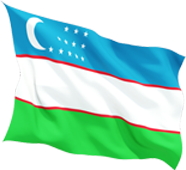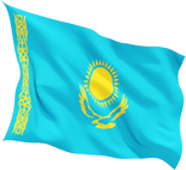Seven years ago, Uzbekistan embarked on a new stage of development. During this period, a large number of cardinal reforms have been carried out in all spheres of the socio-political and economic life of the society.
Meanwhile, the most important areas included democratic reforms aimed at ensuring a wide range of human rights and freedoms, liberalisation of public and political life, and freedom of the media, as reflected in the new version of the Constitution. These reforms have also enabled the national electoral legislation to be updated, which facilitates the holding of elections at a new level.
As is well known, the main stages of the electoral process are regulated by legal acts: appointment of elections, formation of the organizational and technical basis, nomination and registration of candidates, campaigning, voting, determination of the results and their legitimation.
The Right to Nominate a Candidate: How It Is Exercised
According to Article 37 of the Election Code of the Republic of Uzbekistan, political parties shall have the right to nominate a presidential candidate.
In accordance with Article 62, a political party has the right to nominate candidates upon registration by the Ministry of Justice of the Republic of Uzbekistan no later than four months before the date of the announcement of the election campaign.
At present, there are five active political parties officially registered in Uzbekistan: the People’s Democratic Party of Uzbekistan, the Adolat Social Democratic Party, the MilliyTiklanish Democratic Party, the Liberal Democratic Party and the Ecological Party of Uzbekistan.
The Election Code specifies the list of documents that political parties must submit in order to run for the Presidency of the Republic of Uzbekistan. Hence, a political party must submit the following documents to the Central Election Commission in order to stand for election pursuant to Article 63:
- an application for participation in the election signed by the leader of the party;
- a certificate from the Ministry of Justice of the Republic of Uzbekistan containing information on the registration of the political party;
- information on a potential candidate for the post of the President of the Republic of Uzbekistan.
On the basis of the submitteddocuments, the CEC makes a final decision on the party’s admission to the elections within five days and issues a certificate of registration and standard forms of the signature lists to the authorized representative of the political party. The list of parties participating in the elections is published in the central press in the order of receipt of applications.
The nomination of candidates for the presidency of the Republic of Uzbekistanshall be made by the supreme bodies of political parties.
A political party shall be entitled to nominate a presidential candidate only from among its members or from a non-party person. A protocol shall be drawn up for the nomination of a candidatefor the President of the Republic of Uzbekistan. The leader of a political party submits an application for registration of a presidential candidate to the Central Election Commission, together with the relevant documents (Article 64 of the Election Code).
The CEC provides political parties with standard forms of signature lists for presidential elections.
Registration of Signature Lists
According to Article 34 of the Election Code of the Republic of Uzbekistan, a political party that nominates a presidential candidate, shall have the right to appoint an authorized representative to participate in the meetings of election commission, submit documents, check the accuracy of signature lists, and count votes.
Standard forms of signature lists shall be issued by the CEC after the announcement of the start of election campaign. According to Article 38 of the Code, voters shall have the right to putsignature on a signature lists in support of one or more political parties.
The CEC’s placement of political party logos on the signature sheets serves to better inform voters about political parties. This helps to ensure that voters have an accurate idea of which party they are supporting and which political party collected the signatures.
The collection of signatures of voters shall be carried out at the place of work, service, study, residence, at election events, as well as in other places where campaigning and collecting signatures are not prohibited by law. Any form of coercion and bribery of voters by the person collecting signatures shall entail liability established by law.
A signature list shall be signed by the person who collected signatures, indicating his surname, first name, and patronymic, and certified by the head of the district or city structure of the respective political party and the seal.
Voters may sign in support of one or more political parties or candidates. These data shall be entered in handwritten form.
The accuracy of signature lists submitted by political parties shall be checked by the CEC within five days. At least 15 % of the required number of voter signatures and relevant information about the voters who have put signatures on the signature sheets are subject to verification.
The CEC may establish an expert group to verify the correctness of signature lists. It is composed of experts of internal affairs bodies, justice, and representatives of civil society institutions. They check that the forms have been filled in correctly, that corrections have been made, who filled them in and whether there are identical signatures. Authorizedrepresentatives of political parties shall also take part in the verification process.
If a visual inspectionrevealsa violation of the law, these signature sheets are returned to the authorized representative of the political party, and they are given two days to fill in the gaps.
Based on the results of the inspection, the expert group draws up a conclusion for each political party. This is the basis for the CEC’s decision to grant or deny a political party the right to participate in elections.
In general, the process of filling in the signature sheets by the political parties is important to increase the social activity of the electoral corps.
OmonMukhamedjanov,
Professor at Tashkent
State University of Law, Doctor of Juridical Science












